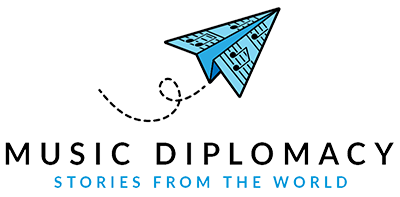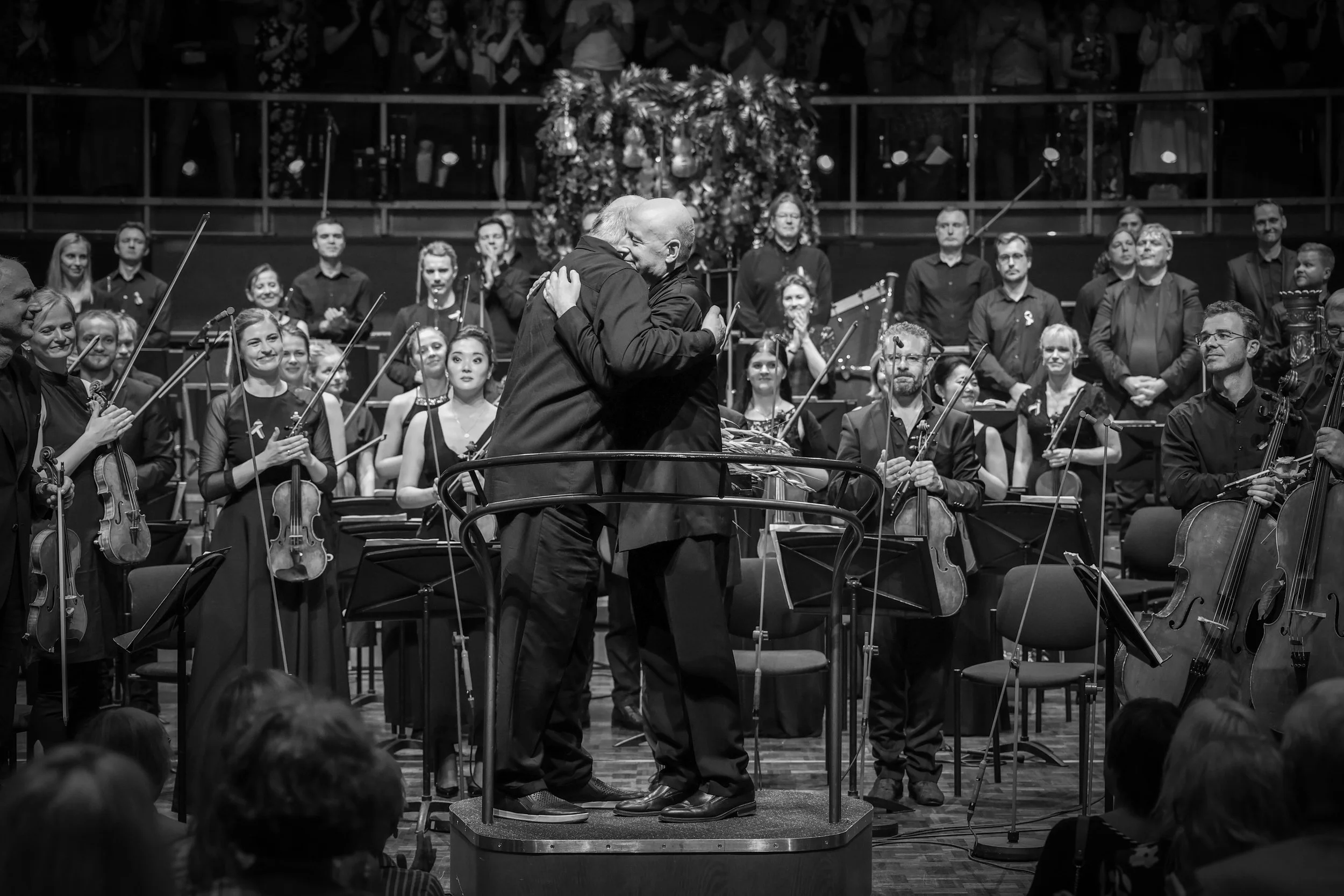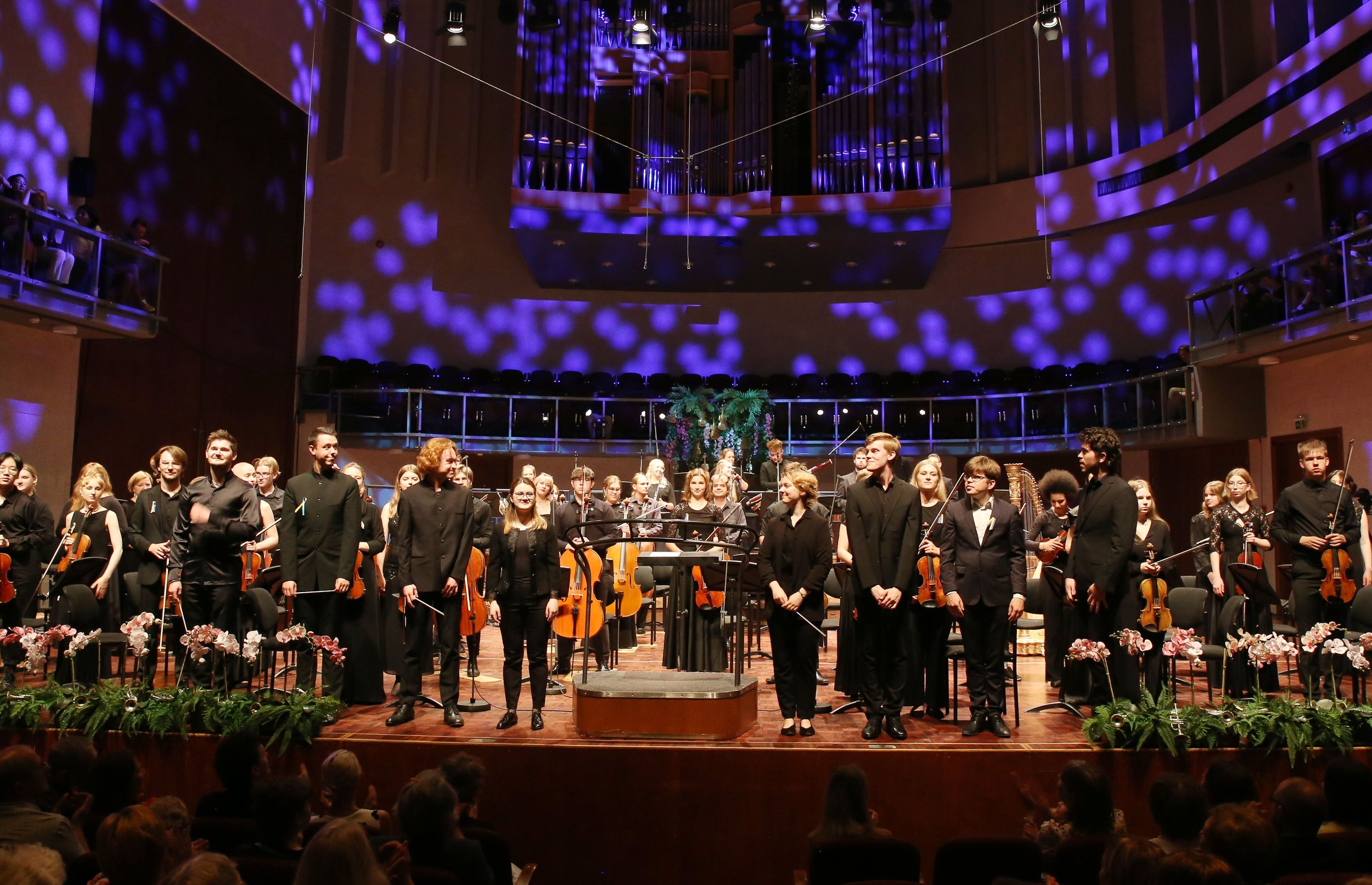Pärnu Festival - Musical Diplomacy in Estonia
If you asked a classical music lover to name some European classical festivals, the familiar ones would probably come up.
Salzburg, Bayreuth, Lucerne.
Edinburgh, Aldeburgh. Glyndebourne, Garsington.
Verbier, of course.
But if you mentioned the Pärnu Festival, you’d probably get a blank look. But for those in the know, it might elicit a knowing smile.
Since 2011 the small Estonian summer town of Pärnu has hosted a festival that continues to develop a reputation as one of the premier summer musical events in Europe. In 2022 I was lucky enough to return there as an orchestra player.
Over two weeks in July the festival serves many purposes – as an educational facility, a networking hub, and a centre of orchestral and chamber concerts of superb quality. However its capacity to draw together large groups of musicians from many parts of the world, all under the auspices of one local family, is somewhat unique.
Paavo Järvi conducting masterclass
The Järvi Dynasty
At the centre of the entire festival is the Järvi family, a dynasty of musicians stretching back at least 80 years. Browsing the festival booklet the multitude of featured musicians sharing this surname is extraordinary. Celebrating his 85th year in 2022 is the figurehead Neeme Järvi, the first Estonian conductor to forge a major international career, after settling in the USA with his family in 1980 (a somewhat risky move for the then-Soviet artist – essentially a defection to the West at the peak of Cold War tensions). Two sons are also conductors – Paavo, a celebrated musician attached to some of the world’s most illustrious ensembles, and Kristjan – a versatile conductor/composer determined to ensure the relevancy of classical music by presenting it in new and dynamic ways.
Neeme’s late brother Vallo was also a conductor, whose numerous grandchildren are now literally dotted across the country in musical positions of all persuasions.
Estonian Festival Orchestra – Musical Ambassadors
The Estonian Festival Orchestra is Paavo Järvi’s baby and the group that probably will be responsible for ensuring the Pärnu Festival’s international reputation. They come to Pärnu each year to present two programs for a hugely enthusiastic public.
I can think of very few other groups with a similar make-up. Players from some of the best ensembles in the world, usually drawn from Paavo’s various orchestral appointments – Tonhalle Orchester Zürich, NHK Symphony Tokyo, Orchestre de Paris, Frankfurt Radio, Deutsche Kammerphilharmonie Bremen – join forces with players from Estonian ensembles – Estonian National Symphony, Estonian National Opera, the Vanemuine Theatre and Tallinn Chamber Orchestra. Plenty of other orchestras are represented too, the Berlin and Münich Philharmonics, the Philharmonia, Royal Scottish National, Riga, Mälmo, Gothenburg, the list goes on.
Paavo’s lustre can draw plenty of international soloists to the festival as well. Joshua Bell, Lisa Katiashvili, Viktoria Mullova, Radu Lupu and Stefan Dohr are only a few of the soloists who’ve performed with the orchestra over the years.
What makes the EFO stand out from other similar ensembles is its commitment to the repertoire of the region. With Mahler, Beethoven and Wagner thoroughly well-represented elsewhere, the EFO’s ‘old masters’ are the likes of Sibelius, Nielsen, Shostakovich, Lutoslawski and Tubin, as well as living Estonian greats Arvo Pärt and Erkki-Sven Tüür.
The orchestra has already made several international tours - Scandinavia, Western Europe, Japan – and in August 2022 heads to South Korea. For me, this is compelling - that an orchestra of mostly international players can act as musical ambassadors for composers of a specific region whose music is somewhat outside the canon, while also representing a small EU member state that lay behind the Iron Curtain for many years.
The Estonian Festival Orchestra at their final Pärnu Festival 2022 concert Photo: Taavi Kull
Baltic Sea Philharmonic – New Modes of Presentation
Kristjan Järvi’s ensemble has a different but no less compelling ethos to the EFO. Where the EFO champions the music of the Nordic region, the BYP champions emerging players from the same region.
Their concerts are masterfully presented. Amplified with subtle lighting changes, all works performed from memory, players who are rarely immobile – regrouping, crouching, huddling, gazing encouragingly at the soloists among them. Kristjan’s direction is crucial, with his boundless energy and contagious enthusiasm he’s the ideal candidate to lead a youth ensemble. The fact he can also achieve seemingly impossible things such as having a full house successfully clapping along to a fast 7/16 number while the musicians leave the stage deserves credit alone.
Despite numerous attempts around the world to reinvigorate the presentation of classical music, Kristjan and the BYP seem to strike an ideal balance between providing a fresh take on the experience of live classical music, without resorting to over-production. That its members are once again drawn from multiple countries provides further evidence of the festival’s ability to unite musicians of different persuasions to a common cause.
Kristjan Järvi leads his players out of the hall Photo: Kaupo Kikkas
The Järvi Academy – a model of educational opportunity
One of the core activities of the festival is the Järvi Academy – a training ground for developing conductors and instrumentalists.
Younger players from around Europe come to Pärnu to be coached and mentored by numerous high-calibre soloists, most of whom play in the Estonian Festival Orchestra. But it’s the conductor’s academy that really stands out as a unique model. Roughly 20 conductors from many parts of the world come to participate in 10 days of conducting sessions supervised by all three Järvi conductors.
Each session features a youth orchestra comprised of Academy instrumentalists and local younger players, where each conductor can try something out with a capable, responsive band that’s just as eager to learn as they are.
Despite having worked with all three Järvi conductors over several years, I’m still struck by their stark differences in personality.
Paavo, perpetually laid-back, will jump straight into the technical aspects - immediately telling each conductor what’s working and what isn’t, never hesitating to take over and demonstrate from the podium if necessary.
Kristjan, much more of a rock-star than his brother, will act as a motivator - asking questions of each conductor, what they’re trying to achieve, making sure they have a specific concept in mind which they’re able to convey.
Neeme, the grand patriarch, is the fastidious one - making sure specific details are not ignored, exhorting each conductor to repeat certain passages again and again until the demands of the score are met.
Keeping them all rooted to earth is the only non-Järvi among the conducting professors, the Ukrainian-American conductor Leonid Grin, who was Paavo’s first conducting teacher and serves as overseer of all the academy participants.
What is common to all of them is a palpable love for the music and an apparent desire to establish a safe, loving environment for conductors and musicians alike. No mind games or attempts to humiliate, just straight to the essence of the music. At the end of the week, all conductors are given a chance to perform in a final concert with the Academy orchestra, which makes for a long but rewarding evening for everyone involved.
Leonid Grin, Neeme, Paavo and Kristjan Järvi at the Academy sessions
Järvi Academy conductors taking their final bows at the 2022 Gala Concert Photo: Taavi Kull
Music Has No Boundaries?
The 2022 festival was not without a sour note.
Not for the first time, the world has learned from the war in Ukraine that music does occasionally have boundaries. In my previous tours with the orchestra, the EFO featured a notable contingent of Russian players, again mostly due to Paavo’s activities with Russian orchestras.
Not so this year.
Estonia and other EU countries’ current embargo on working rights to Russian citizens has meant that many of the regular faces from past seasons were legally barred from participating. A few were able to make it to Pärnu just to come and watch the concerts, and were clearly sad and disappointed to have not been able to stand alongside their colleagues, with whom they had performed in some of the world’s great venues only a few years prior.
As a formerly occupied state under the Soviet regime, Estonia’s relationship with Russia has always been fraught and tensions never far from the surface, so the country’s hardline approach to its Russian neighbours since the onset of the Ukraine conflict is perfectly understandable given the two countries’ turbulent history.
However this article is not intended to make comment on geopolitical shifts. It’s simply sad when politics encroaches upon something as relatively innocuous as a music festival, one with a message of diversity and inclusivity.
Nonetheless, the Pärnu Festival has consistently demonstrated an ability to bring together people from vastly different countries, by giving them a platform, a safe space to hone their craft and share it with the world, while forging new friendships and establishing new career opportunities. In a country that has seen more than its share of hardship and oppression, the Estonians can be justly proud of a festival that continues to promote peace and understanding through tireless musical diplomacy.
Adam Jeffrey
2022 Cohort Member, Global Leaders Program
Music Diplomacy - Stories from the World has partnered with The Global Leaders Program to share highlights of music diplomacy cases from around the world. The Global Leaders Program empowers cultural changemakers to grow organizations that impact communities through an innovative twelve-month Executive MBA in Arts Innovation. Led in partnership with nine top universities and think tanks, a world-class faculty and a network of institutional fieldwork hosts spanning 40+ nations, the program is offered annually to an executive cohort of 60 accomplished arts professionals from around the globe.










